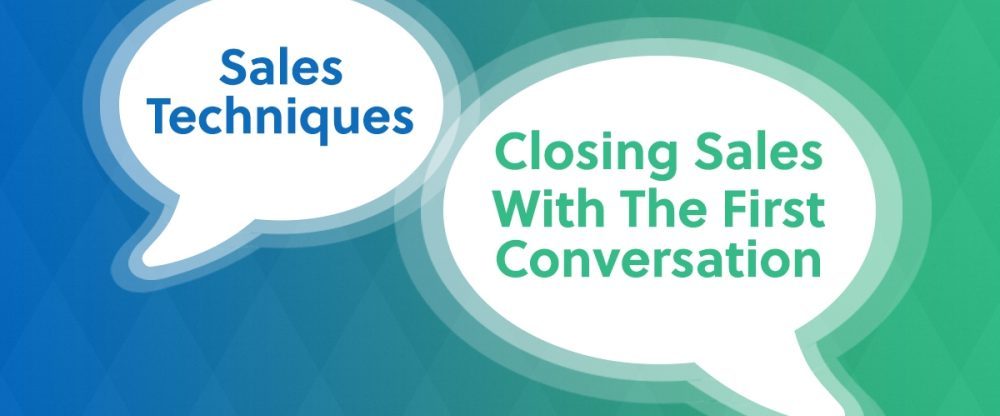The first sales conversation can make or break a deal.
If the first conversation goes well, I mean really well, you get this instinctive feeling that the person wants what you’re selling. The prospect may even hint that they are excited to start the journey together.
Know the feeling?
We’re all searching for that perfect customer that values what we do, appreciates our approach, trusts us on instinct, and is ready to move. It’s amazing when it happens, but it’s not the norm.
There’s no sure-fire way to engineer this flawless first call phenomena, but there are ways to guide the prospect and steer the relationship to your advantage, starting with your sales techniques. The first conversation sets the tone for the customer experience and should result in a clearly organized path with action items for both the client and the agency.
No matter what you are selling, or even if it’s too early in your sales consultation to know, it’s important that certain information is collected and that the client leaves the call feeling confident. You want them to feel that they are talking to the right person and that your company is both able and willing to support and guide them through the process.
Here are some tips for the first call or meeting that will improve your sales techniques and ultimately will help with closing sales:
Focus the conversation
If the sales rep isn’t focused, the client won’t be either, and the sales process will feel scattered or misdirected. Even worse, your chances of closing the deal will be low. It’s the expert’s job to guide the conversation and give it direction, without being overpowering. Let the prospect do the talking and fill in the gaps with pointed questions to help direct the conversation.
Selling is less about talking and more about listening, learning and providing value.
Consider why they are talking to you
Before you start thinking about what you’re going to sell and how you’re going to present it and price it out, think about why they are talking to you in the first place. What needs to change for them? Why did they pick you? Use this to your advantage. Don’t try to be something you’re not. They came to you for a reason.
Figure out the prospect’s pain points
It’s good to know the company’s goals and challenges, but what about the person you’re talking to. What makes their job difficult? What can you solve for them, personally? Find out and start working towards it immediately.
Understand the prospect’s audience
Get across that you care about their audience and needs. Ask questions that show you’ve done your homework, and find out what they want their audience to accomplish. If you understand that, you can help them focus in on what’s important.
Add value without expectation
Is there something you can do to separate yourself from the crowd? For example, offer to come visit the prospect and get to know their business, or let the prospect know you can work together to collect some examples of work in the industry to get the project going (we call this Discovery), regardless of whether they engage your company.
It’s not about you
It’s all about the prospect! They’ll ask questions if they want to know more about your company. Provide only the crucial details to show you are capable and knowledgable. Don’t feel like you always have to whip out that 25 slide capabilities deck.
Know the rules of the game
If there is a clear project or set of needs, find out if there is a timeline and what hurdles there are to getting started. Find out who will be involved and who is making the decision. These are fair questions so don’t be hesitant to ask. These questions, even if they are difficult, help the client to evaluate project from all perspectives. So again, you’re adding value.
End the call with clear next steps
Even if it feels redundant, set a date to visit the client or list out the action items you discussed during the call. Set a day and time for follow up with conversation topics or questions you need answered. This shows an organized mind ready to manage them effectively.
When you decide, be decisive
Do not lock yourself into a project or approach that doesn’t make sense for the business. If there’s a concern, call it out immediately. Listen to the client, think critically and make confident recommendations when you are ready. Consulting is a big part of the sale and it’s a delicate dance. Be confident. Indecisiveness won’t help you close the sale.
Ready to approach your next sales call a little differently? Remember, it’s about creating a rapport, even if it takes time. Urgency is ugly.
Are there other sales techniques you have to help agencies or consultants in closing more sales?
